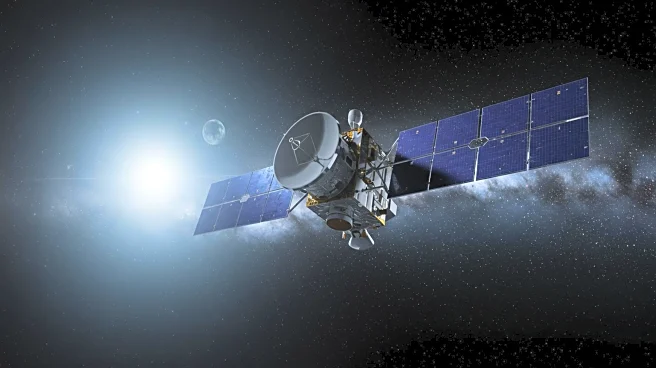What's Happening?
The UK Space Agency (UKSA) is set to be integrated into the UK Government’s Department of Space, Innovation, and Technology (DSIT), a move that has stirred discussions within the space industry. The restructuring aims to streamline regulatory processes, reduce costs, and strengthen the agency's voice within the government. While some industry leaders view this as a positive step towards efficiency, others express concerns about increased bureaucracy and the loss of independent status, which could tie funding to political decisions. The reorganization is seen as a potential catalyst for faster progress, aligning UKSA more closely with government ambitions.
Why It's Important?
The integration of UKSA into DSIT represents a significant shift in the UK's approach to space policy and strategy. By consolidating functions, the government aims to enhance efficiency and reduce redundancy, potentially saving costs and improving regulatory processes. However, the loss of semi-independence raises concerns about the agency's ability to pursue long-term space goals without political interference. The restructuring could impact funding and strategic priorities, influencing the UK's position in the global space industry. The move highlights the ongoing debate about balancing government oversight with industry autonomy in advancing space exploration and innovation.
What's Next?
The restructuring may lead to changes in how space projects are funded and prioritized within the UK government. Industry leaders are watching closely to see if the integration will deliver the promised efficiencies or result in increased bureaucracy. The success of the reorganization will depend on DSIT's ability to meet public and industry expectations while maintaining responsiveness and decisiveness. The move could also prompt discussions about further nationalizing independent defense space organizations, although current plans do not include such actions. Stakeholders will need to navigate the new landscape to ensure continued growth and innovation in the UK space sector.
Beyond the Headlines
The restructuring raises broader questions about the role of government in space exploration and the potential risks of politicizing space policy. The integration could lead to shifts in funding priorities, affecting research and development in critical areas such as climate change and security. The move also highlights the importance of aligning space policy with broader national interests, including defense and trade. As the UK navigates this transition, the industry must consider the implications for international collaboration and competition in the space sector.









